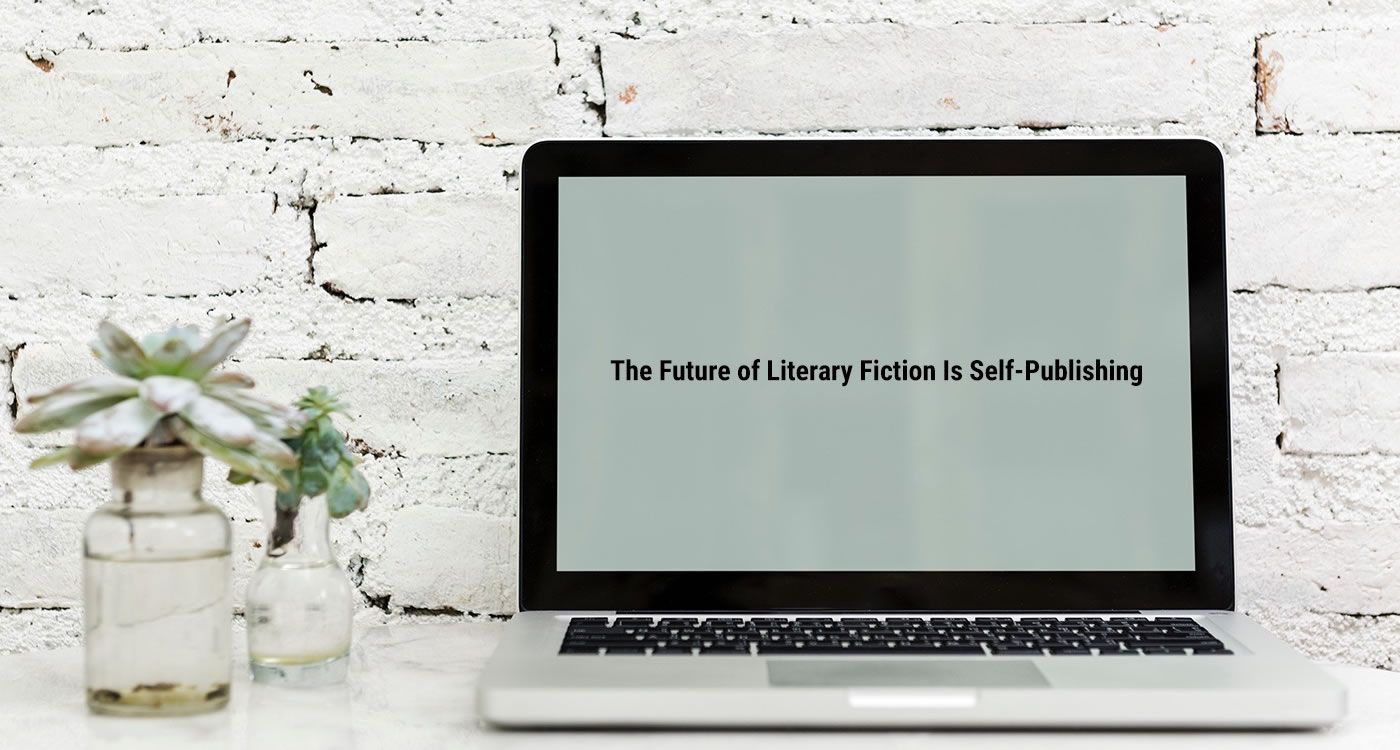
The Future of Literary Fiction Is Self-Publishing
Recently, writer and contrarian Will Self declared that literary fiction is not widely read anymore. I couldn’t agree more. Sixty years ago, the likes of Lolita, Doctor Zhivago, and Catcher in the Rye were bestsellers; nowadays, a recent NYT bestseller list is filled with mostly crime fiction and thrillers. You’d be hard-pressed to name a literary fiction novel that has sparked the imagination of the masses recently in the way The Da Vinci Code, Fifty Shades of Grey, or any Harry Potter books did. In fact, I’ve recently had to explain to many curious readers just what exactly literary fiction is. As a writer of humorous literary fiction, I find this to be very disheartening.
Literary fiction is a catch-all category of fiction, an umbrella category covering a broad range of themes; it is a spectrum of literature. Many of you may be asking: What is literary fiction? NY Book Editors define literary fiction as a type of fiction that “doesn’t adhere to any rules. Anything can happen which can be both exciting and unnerving for the reader. Sometimes, literary fiction takes a common theme in genre fiction and turns it on its head.” This is opposed to genre fiction, such as mysteries or romance, which is also “known as popular fiction… Genre fiction is more appealing to a wider audience. It’s written for the mainstream reader” and typically follows a storytelling formula and is plot-driven: Boy meets girl, boy falls for girl, boy loses girl, etc.
NY Book Editors further describe genre fiction as entertaining, often featuring happy endings, making it easier to sell for publishers, mainly because something easier to categorize is easier to sell. “It’s a romance!” That’s a simple widget to describe, which makes it easier to commodify — supposedly. Literary fiction isn’t plot-driven; it’s character-driven. Literary fiction uses creative storytelling, explores the human condition, and many times has ambiguous endings. Most of the great works of literature are categorized as literary fiction: The Adventures of Huckleberry Finn, The Catcher in the Rye, and To Kill a Mockingbird, to name a few. (These are American examples, of course. There are numerous examples from other countries as well. That’s another article for another time.)
Many works of literary fiction plumb the depths of the human condition and could be described as serious and dour. When many readers look to reading as a form of escapism, a book that is “serious and dour” can be a hard pill to swallow. Genre fiction can be easier to consume and therefore more appealing to a wider audience. But this an oversimplification. If literary fiction “doesn’t adhere to any rules,” then it doesn’t have to be serious or dour. In fact, two of the three examples of literary fiction I gave above are hilarious, and that’s not just my opinion. Huckleberry Finn and Holden Caulfield have endeared themselves to countless generations with their humorous and witty observations. So why is literary fiction now perceived as “serious fiction” and more substantive — therefore not as entertaining? Why does exploring the human condition have to connote that literary fiction is “depressing?” Defining a type of fiction that doesn’t follow any rules as depressing is, in itself, depressing. Literary fiction can be fun and entertaining while exploring the human condition. Literary fiction can also have happy endings.
And indie writers are leading the way with radical literary fiction that is free from constraints. Indie writers are breaking the rules, not only with their writing, but with the way they publish literary fiction: self-publishing.
Read the full article on Medium.com
This blog post originally appeared on Medium.com, Feb 24, 2019. Written by Scott Semegran.

